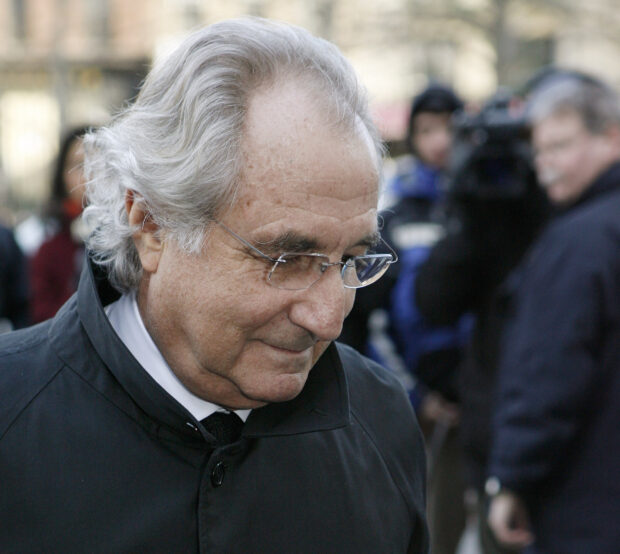Long before cryptocurrency and Sam Bankman-Fried, the biggest name in corporate fraud was Bernie Madoff.
Fifteen years after the FBI arrested Madoff on Dec. 11, 2008 for running a massive Ponzi scheme—and two years after his death in a federal prison—lawyers are still sifting through the fallout of his nearly $65 billion fraud.
More than $14.6 billion has been recovered for Madoff’s victims so far by Irving Picard, the court-appointed trustee overseeing the liquidation of Madoff’s firm, and his legal team. Picard has estimated that Madoff’s fraud cost his customers $17.5 billion.
Another recovery came earlier this month when Picard announced he was poised to distribute $45 million more to Madoff investors.
The case has been a windfall for Picard, 82, and his law firm, 1,000-lawyer Baker & Hostetler. Since Picard’s appointment 15 years ago, they have been awarded more than $1.5 billion in fees, court records show.
The fees through November 2022 have amounted to nearly 17 percent of Baker & Hostetler’s revenues in that time, according to a Reuters analysis of court records and law firm data from the American Lawyer —an unusually large proportion from one case for a firm its size.
Picard and Baker & Hostetler declined to comment. Their latest request for fees to the U.S. bankruptcy court in Manhattan seeks $37.9 million for more than 68,000 hours of work by 190 lawyers and professionals from April through July.
Picard decided early on to bring cases against “feeder funds” that funneled investor money to Madoff, and “net winners” —investors who took more money out of Madoff’s firm than they put in.
About half of his recoveries came from a 2010 settlement with the estate of Madoff’s longtime friend Jeremy Picower, which forfeited $7.2 billion. In recent years, Picard’s attention has turned to recovering money that was transferred overseas.
Marc Litt, who helped convict Madoff as a Manhattan federal prosecutor and is now at law firm Wachtel Missry, called Picard’s recoveries “a remarkable result.” Usually, he said, victims’ money in a major fraud is spent in ways that can’t be clawed back.
100 Cases to Go
Picard’s and Baker & Hostetler’s fees are paid by the Securities Investor Protection Corporation, a nonprofit that Congress created in 1970 to assist investors with accounts at failed brokerage firms.
The fees come from assessments paid by SIPC’s member broker-dealers, not from Picard’s recoveries, said Josephine Wang, SIPC’s president and CEO.
It’s not uncommon for law firms to reap massive fees from complex corporate collapses involving fraud. The lawyers that represented investors in Enron Corp received about $688 million in fees in 2008 for recovering $7.2 billion from its lenders, auditors and directors over seven years.
U.S. law firm Sullivan & Cromwell has already received a judge’s approval to collect more than $77 million in fees for its work since last year overseeing the bankruptcy estate of cryptocurrency exchange FTX, court records show.
Like the Madoff case, the FTX bankruptcy will likely stretch for years. The exchange collapsed in November 2022, and its CEO Bankman-Fried was convicted last month of stealing $8 billion from FTX customers.
Meanwhile, Picard’s work goes on. Wang said the trustee is still waging about 100 recovery lawsuits, down from 1,000 at the start of the Madoff liquidation.
“Yes, the trustee and SIPC are working hard to bring a close to the liquidation, but that will happen only after the maximum recovery has been realized for customers,” Wang said.
Photo: AP Photo/Stuart Ramson, File





















 Flood Risk Misconceptions Drive Underinsurance: Chubb
Flood Risk Misconceptions Drive Underinsurance: Chubb  Earnings Wrap: With AI-First Mindset, ‘Sky Is the Limit’ at The Hartford
Earnings Wrap: With AI-First Mindset, ‘Sky Is the Limit’ at The Hartford  How Americans Are Using AI at Work: Gallup Poll
How Americans Are Using AI at Work: Gallup Poll  Experts Say It’s Difficult to Tie AI to Layoffs
Experts Say It’s Difficult to Tie AI to Layoffs 